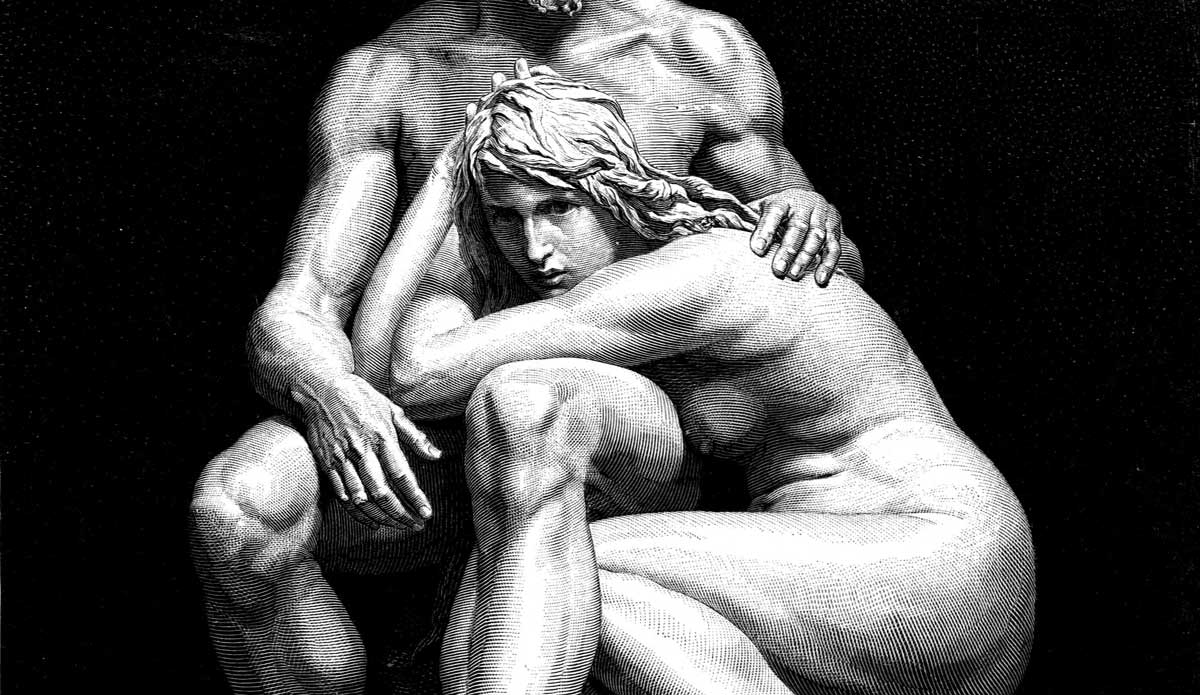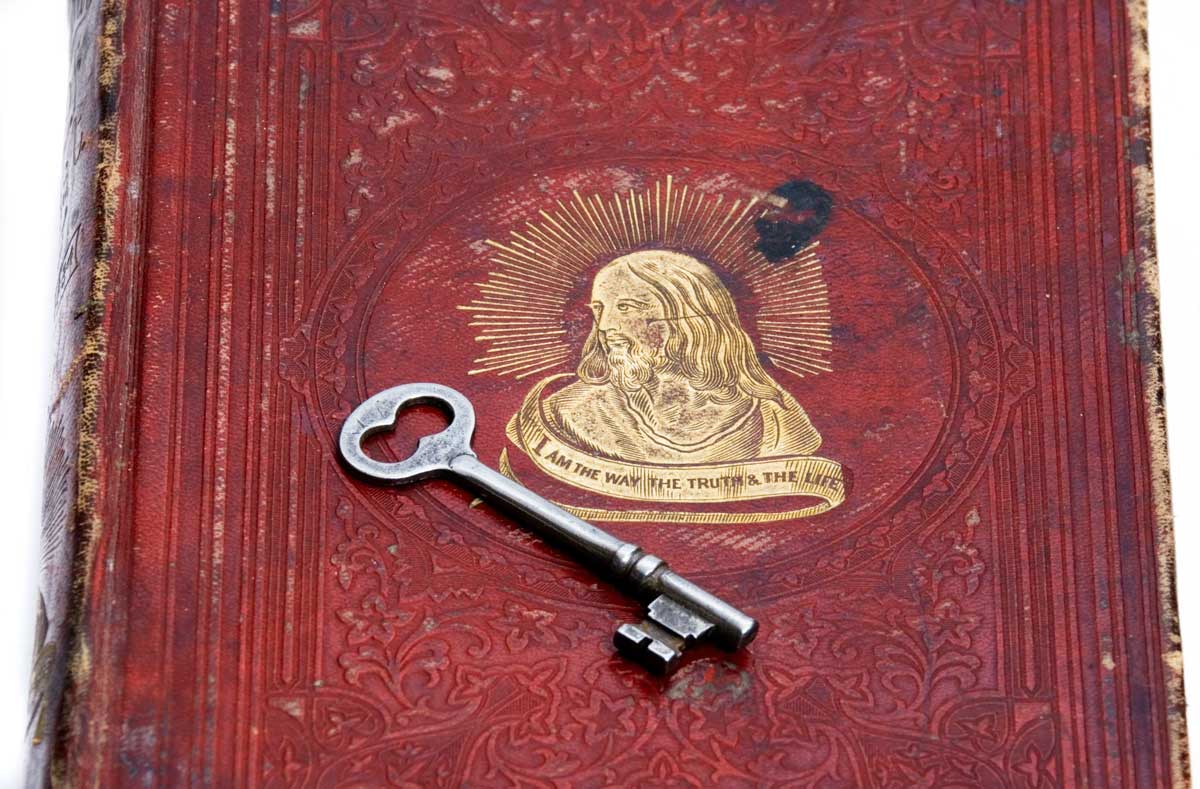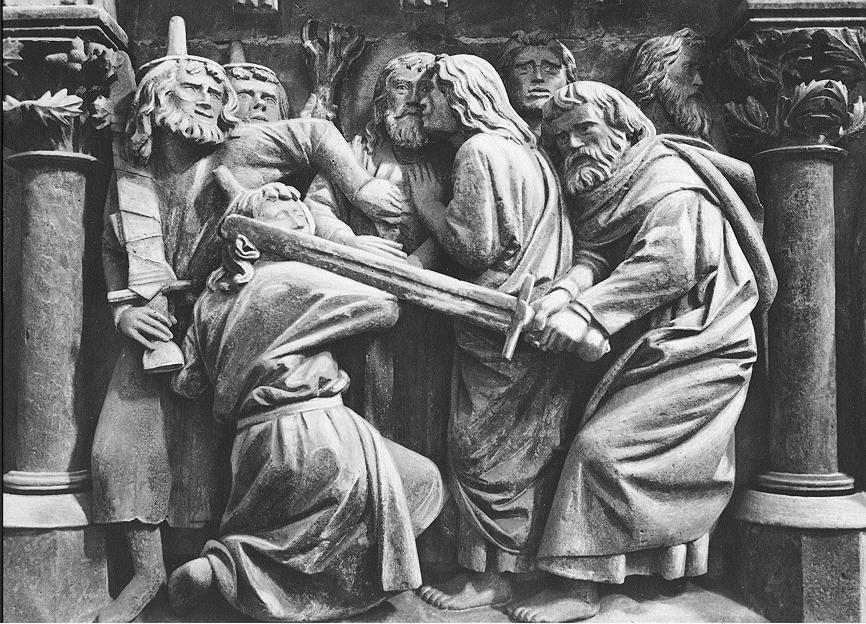View
Listening to Eve
Judith Anderson on the Brevity & Theology of Her Recorded Words
Literature, visual art, film, psychology, and other fields would be substantially diminished without the story of the biblical Eve. References to her are plentiful and span generations. The tones and hues may differ, but many of these references are predicated on a notion of scandalous womanhood.
Scripture plainly reveals Adam's misstep in listening to Eve. Scripture also records Eve's words—to the serpent and to God—before and after the Fall. And the record of these words encourages us to listen to Eve not in censorious judgment but with kindred critical appreciation. In these words we hear the origin of our own prayers of confession, praise, and dependent hope.
Eve's Name
Her name is wildly suggestive, evoking diverse associations. She received it from her husband sometime after they had ushered death into a deathless world. We who never knew Eden directly cannot know its loss in quite the same way that Adam and Eve knew it. We who do know the suffering engendered by shame and guilt cannot fully fathom their fear as they hid from God. We who hear God's voice in his Word wonder about the sound of his voice when he pronounced his righteous judgment on the offending pair and the deceiver.
Perhaps the Edenic conversation of their former estate was now muted by the loudness of Adam and Eve's shame, fear, and guilt. Surely their sin and its accompanying consequences threatened to suffocate the God-breathed life that animated them. Adam had wrongly "listened to the voice of [his] wife" after she had listened to the voice of the serpent, but he hears in God's curse upon the serpent a promise for himself and the woman. And so, juxtaposed with the terrible knowledge that death means that they will return to dust, we read that "Adam called his wife's name Eve, because she was the mother of all living."
Since then, the names given to Eve and her story have not always been as generous or hopeful. She has been vilified (and sometimes celebrated) as a temptress, scorned as a gull, and decried as an early example of chauvinistic characterizations of female identity. In discussions extending beyond Genesis to include a wider scope of human history, she has been compared to and contrasted with Mary, the mother of Jesus. She is most often discussed in terms of her relationship with Adam, but her relationship with her Creator is also instructive. She is, together with Adam, the first image-bearer of the God of the universe, and her four recorded statements reveal her relationship with this God in a distilled theology that all of her children of promise will recognize.
The First Two Statements
Against the halcyon harmony closing Genesis chapter two, chapter three introduces an interloper. His "craft and power are great," and Eve's first recorded statement in response to his question reiterates and elaborates upon God's command: "We may eat of the fruit of the trees in the garden, but God said, 'You shall not eat of the fruit of the tree that is in the midst of the garden, neither shall you touch it, lest you die'" (vv. 2–3). These words indicate her understanding of the principle of obedience, but her simple understanding is an inadequate defense against Satan's hatred.
Her next recorded statement is situated in the colloquy with God that follows the couple's disobedience. Eve says, "The serpent deceived me, and I ate" (v. 13). In contrast to Adam, Eve does not impute blame to God or to Adam. She admits her guilt and the guilt of the serpent, and she identifies deception as being linked to disobedience.
This thematic linking resonates throughout the words of Eve's descendants. Generations later, as Moses prepares God's people to enter a beautiful land, he warns, "Take care lest your heart be deceived, and you turn aside and serve other gods and worship them" (Deut. 11:16). Later still, the Apostle Paul warns the believers at Colossae, "See to it that no one takes you captive by philosophy and empty deceit, according to human tradition, according to the elemental spirits of the world, and not according to Christ" (2:8). We hear echoes of Eve again when we read Paul's letter to the Roman church explaining that it is not God's commandment that provokes sin; rather "sin, seizing an opportunity through the commandment, deceived [him] and through it killed [him]" (7:11). The last chapter of this same letter contains a warning and a promise that have all the marks of the Genesis story:
I appeal to you, brothers, to watch out for those who cause divisions and create obstacles contrary to the doctrine that you have been taught; avoid them. For such persons do not serve our Lord Christ, but their own appetites, and by smooth talk and flattery they deceive the hearts of the naïve. For your obedience is known to all, so that I rejoice over you, but I want you to be wise as to what is good and innocent as to what is evil. The God of peace will soon crush Satan under your feet. (16:17–20)
The first couple, of course, does not have the benefit of the oral and written histories of redemption. They do have, as a painful consequence of their submission to deception, the vision of a "flaming sword that turned every way to guard [them from] the way to the tree of life" (Gen. 3:24), manifesting their status as exiles facing death.
The Third Statement
In yet another juxtaposition, "life" opens chapter four: "Adam knew Eve his wife, and she conceived and bore Cain," the first offspring of "the mother of all living." Wonder and delight subdue the shadow of sin as Eve's third recorded statement acknowledges "the help of the Lord" in this first birth of "a man." There is no record of her experience of pain in childbearing, though she no doubt suffered this pain. What is recorded is her brief paean or psalm to the God who helped her produce this child: "I have gotten a man with the help of the Lord" (v. 1).
She names the child Cain, and we who know his story do not hear the beauty of her naming. The ESV and NIV explain that Cain's name "sounds like the Hebrew for gotten" or "brought forth or acquired," words that stand in hopeful contradistinction to the shattering loss of paradise. We infer a tone of joy—mixed with surprise and gratitude because of their exile. A second child is born, and though no statement from Eve is attached to Abel's birth, we know that "the Lord had regard for Abel" (v. 4). The tumultuous cataclysm of Adam and Eve's sin in the garden seems muted now by the blessings of life.
"In the course of time," however, the first death occurs when the son whom the Lord had helped Eve acquire murders his younger brother and is himself exiled to a life of wandering. Eve's thoughts following the fratricide and exile are unknown. Perhaps she was assailed by fear of the power of sin's curse or by doubt of God's provision of mercy. Perhaps she longed for her own death so that she would no longer suffer the pain of childbirth or the greater suffering of watching sin twist the lives of those to whom she had given birth.
Scripture is full of Eve's suffering children seeking answers in the face of their doubt, solace in their experience of grief, and peace for their troubled souls. The guilt of Eve's sin against God and her husband (though Adam's guilt against God and his wife is equal to hers) must have seemed very loud again, resounding with the deceiver's assaults.
Generations later, the sound of Rachel's "lamentation and bitter weeping . . . [that] refuses to be comforted for her children, because they are no more" (Jer. 31:15) reverberates throughout Ramah in what may be an echo of Eve's pain. Through his prophet Jeremiah, God responds, "There is hope for your future," because he will bring her children "back from the land of the enemy . . . back to their own country" (31:16–17). Calvin's commentary on these verses speaks to Eve's probable experience and ours:
[T]he country possessed by the sons of Benjamin had been reduced to desolation, so that the mother, as one bereaved of her children, pined away in her lamentation, as nothing could afford her comfort, because her whole offspring had been cut off.
Now follows a promise which moderates the grievousness of the calamity. And the two verses ought to be read as opposite the one to the other, 'Though Rachel, weeping for her children, has no ground for consolation for a time, yet God will console her.' And thus the Prophet, in the former verse, exhorts the Jews [God's chosen people] to repentance, but in the latter to hope: for it was necessary that the Jews should be forewarned of their dreadful calamity, that they might acknowledge God's judgment; and it was also necessary for them to have their minds inspired with hope. Now, then, the Prophet bids them to be comforted; for Rachel, having long bewailed her children without any consolation, would at length obtain God's mercy. God then would console Rachel after her long lamentation.
The Fourth Statement
Whether Eve's bereavement was protracted in the way Calvin notes ("for a time," "having long bewailed," "long lamentation") is another unknown. Suffering distorts the experience of time, and death's lament lingers; but in the course of an unspecified time, Eve gives birth to another son. She names him Seth—which the ESV and NIV gloss as meaning "he appointed" or "granted"—proclaiming, "God has granted me another child in place of Abel, since Cain killed him" (Gen. 4:25).
Her tone is blunted by the plain brevity of her words (spoken possibly with mixed emotions), but her theology is evident. In this fourth and final recorded statement, Eve juxtaposes life and death, joy and sorrow, God's purposes and humanity's actions, appointment and disappointment. Her declaration reveals her unflinching acknowledgment of sin's plangent consequence alongside a recognition of God's promises, purposes, and power.
In the course of time, Seth's birth is followed by the births of many other sons and daughters. With each new infant's cry, Eve and Adam hear again God's promise to vanquish the destroyer. Millennia later, "in the fullness of time," God's only begotten Son shares Seth's genealogy to fulfill the promise Adam and Eve heard in the Garden. Paul writes to the Galatian believers: "But when the fullness of time had come, God sent forth his Son, born of woman, born under the law, to redeem those who were under the law, so that we might receive adoption as sons" (4:4–5).
A Paradigm
Eve's experience of Eden's perfection, the serpent's malignity, exile's frightfulness, childbirth's astonishment, and even death's horror is unique to her and Adam because of their lack of any history. We who exist in the historical milieu that has ensued—and who benefit from the text and flesh of God's Word, yet struggle with the effects of sin until Christ's return—can hear in her words the seeds of our own experience of God. They offer a paradigm.
Her first word testifies to her understanding of God's generosity ("We may eat of the fruit of the trees in the garden") and covenantal proscription (but we "must not eat of the fruit of the tree that is in the midst of the garden . . . lest [we] die"). Her second word offers a reflective confession of her guilt ("the serpent deceived me, and I ate"). After their expulsion from the Garden and before any death has occurred, "the mother of all living" conceives and gives birth to her first child. This prompts her third word, a testimony to God's gracious succor and goodness ("I have gotten a man with the help of the Lord"). The last of her words declares God's faithful providence in the wake of sin's consequences ("God has appointed for me another offspring instead of Abel, for Cain killed him").
We, children of the mother of all living, should listen to Eve's recorded words. In them, we hear an original burden of sorrow and a refrain of hope that have become for us an anthem of God's faithfulness to all generations.
Judith Anderson taught high-school English for twenty years. Her essay, "Doers of the Word, Shakespeare, Macbeth, and the Epistle of James" appeared in the July 2017 issue of Christian Scholar's Review. She and her husband Donald are members of Covenant PCA in Short Hills, New Jersey, and reside in nearby Plainfield.
subscription options
Order
Print/Online Subscription

Get six issues (one year) of Touchstone PLUS full online access including pdf downloads for only $39.95. That's only $3.34 per month!
Order
Online Only
Subscription

Get a one-year full-access subscription to the Touchstone online archives for only $19.95. That's only $1.66 per month!
bulk subscriptions
Order Touchstone subscriptions in bulk and save $10 per sub! Each subscription includes 6 issues of Touchstone plus full online access to touchstonemag.com—including archives, videos, and pdf downloads of recent issues for only $29.95 each! Great for churches or study groups.
Transactions will be processed on a secure server.
more on bible from the online archives
more from the online archives
calling all readers
Please Donate
"There are magazines worth reading but few worth saving . . . Touchstone is just such a magazine."
—Alice von Hildebrand
"Here we do not concede one square millimeter of territory to falsehood, folly, contemporary sentimentality, or fashion. We speak the truth, and let God be our judge. . . . Touchstone is the one committedly Christian conservative journal."
—Anthony Esolen, Touchstone senior editor












